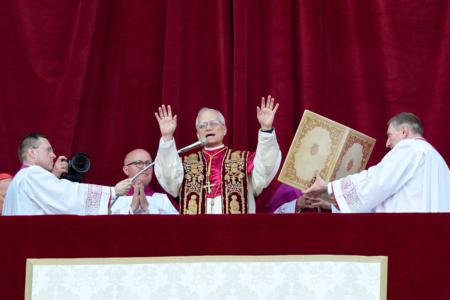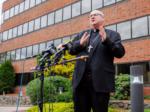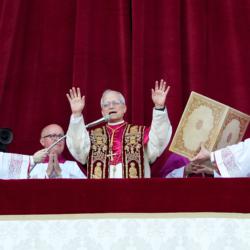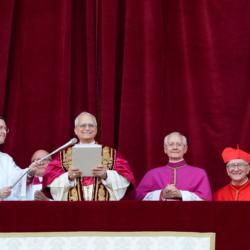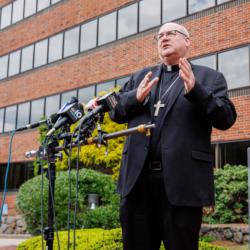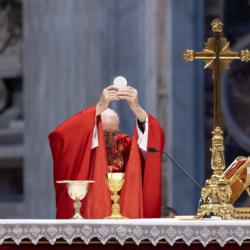Question: Are demonic possessions just mental illness?
Q: In watching "the Chosen" I noted a couple of demoniac episodes were included, as are in fact depicted in Scripture. No CGI effects were done to show the demons either going in or coming out of the victims, making the healed person seem to simply be someone with personality disorders. What does the church say today about demons? Are they real or were they ancient superstitions and misidentifications of what would today be called "mental issues?" (City withheld, Indiana)
A: The church teaches that demonic possession, while rare, is certainly something that can happen.
In 1999, the rite of exorcism was the last liturgical ritual to be revised after Vatican II, but it's worth noting that this ritual is for what we call "major exorcisms," or exorcisms intended to release the afflicted from actual demonic possession (i.e., more or less along the lines of the exorcisms we see portrayed in the movies). But in the Catholic Church we also have "minor exorcisms," such as the prayers prayed over soon-to-be baptized infants and adult catechumens preparing to enter the Church. Minor exorcisms are meant to strengthen the one seeking baptism against the very real powers of evil, with no presumption that the one receiving the minor exorcism is actually possessed.
Because of the reality of the demonic, today every diocese is supposed to have a specially trained priest, appointed by the diocesan bishop, who serves as the diocesan exorcist.
That being said, it requires careful discernment on the part of the exorcist-priest to determine whether or not a true demonic possession is actually the source of a particular individual's suffering. As the U.S. Bishops' Conference website's page on exorcism notes: "The exorcist is instructed to employ the utmost circumspection and prudence before proceeding to the rite. Throughout his ministry, an exorcist must establish a balance within his own mind between not believing too easily that the devil is responsible for what is manifesting, and attributing all possible manifestations solely to a natural, organic source." To that end, most dioceses in United States have protocols which require an individual to have medical and psychiatric evaluations, to rule out potential natural causes, before they can receive a major exorcism.
Finding a medical or mental health condition that could mimic demonic possession is one way to gain clarity that a person's suffering is not caused by the direct malevolence of a supernatural entity.
On the other hand, introduction to the rite of exorcism lists some medically-unexplainable, positive "signs and symptoms" of demonic possession, such as: the afflicted person speaking and understanding foreign languages they never studied; revealing hidden knowledge or information they would have had no way of knowing; and demonstrating physical strength beyond what would be normal for their size and general condition. True victims of possession will typically also have a history of dabbling in the occult, such as through fortune-telling, visiting psychic mediums, playing with Ouija boards, or participating in "New Age" activities.
If we turn to the Gospels themselves, there are some instances where Jesus cast out demons in a way that might perhaps be interpreted as the curing of a mental illness, such as when he frees a mute man to speak. (See Matt 9:32)
But there are also many narratives of Jesus performing exorcisms in unambiguous cases of actual demonic possession. For example, we read of demons tormenting two possessed men; they recognize Jesus and cry out to him: "What have you to do with us, Son of God? Have you come here to torment us before the appointed time?" (Matt 8:29)
But the bottom line we should always remember is this: whether the biblical exorcisms cured cases of true demonic possession or mental illness, the message to us is the same: God has supreme authority over all that he has created, and he wishes salvation and healing for all his children.
- Canonist Jenna Marie Cooper is a consecrated virgin, a practicing canon lawyer, and columnist for OSV News.
